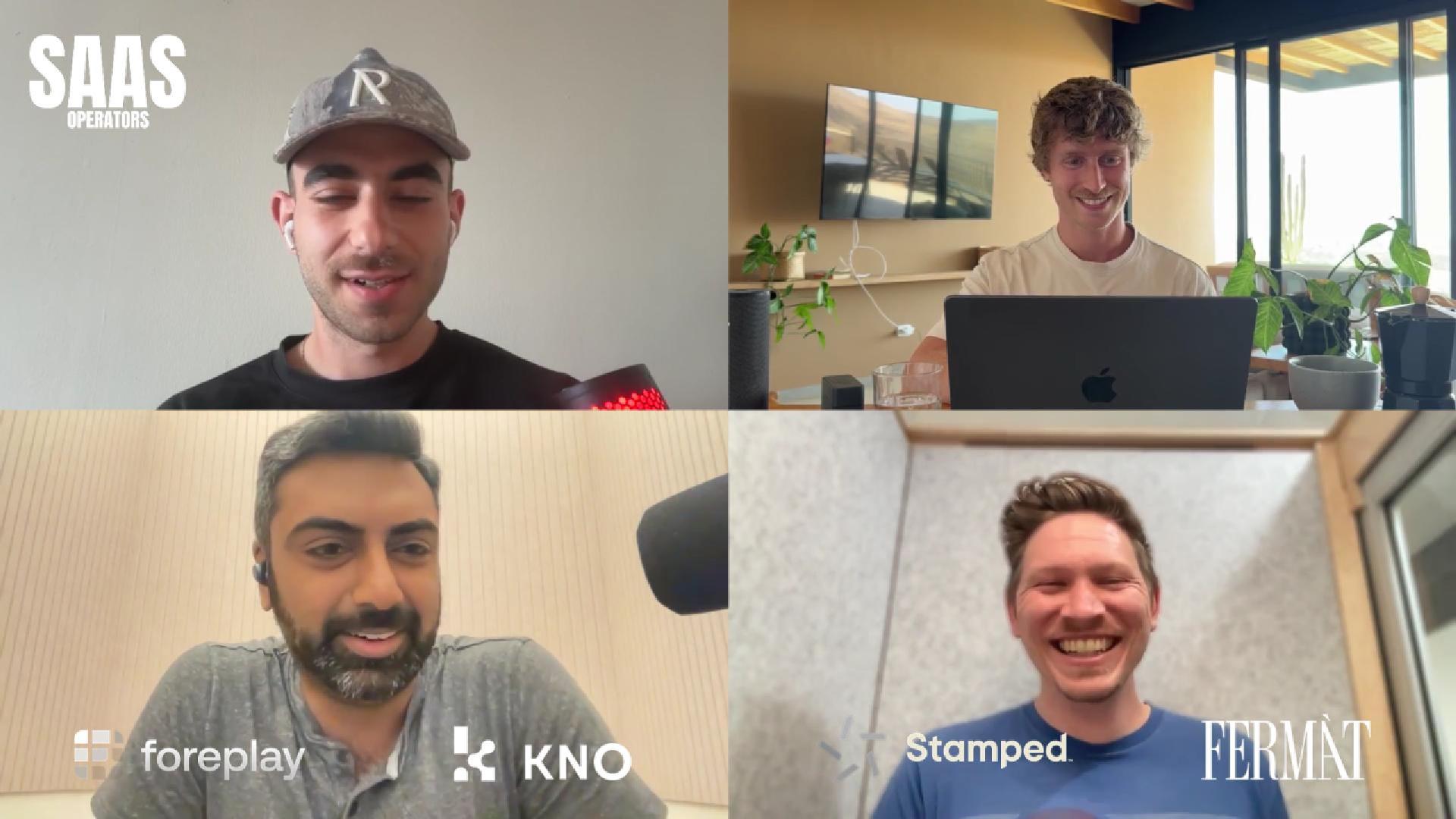E21: Why Your Competitors Make You Better with Eli Weiss
In this episode of the SAAS Operators Podcast, we’re joined by Eli Weiss for a conversation about competition, focus, and culture in SAAS. We start with Judge.me, Yotpo, and Eli’s perspective on why competitors make you better, even when you want them to lose. From Olipop vs. Poppy to Shein and Temu, the group unpacks how competitors expand categories, legitimize markets, and drive product innovation. We talk about operating rhythms, how sequencing work accelerates learning, and how transparency in the form of receipts keep people accountable to delivering. Eli brings a hot take on brand, culture, and the differences between running fast-growth DTC brands and building software as a service. The episode closes on leadership lessons, bias to action, hiring fit, and the realities of scaling in a world where features can be copied overnight but brand and culture cannot.

We just recorded a spicy episode with Eli Weiss and the crew that turned into a masterclass on competition, focus, and how teams actually get work done. Here’s the distilled version.
Competition: friend, foe, or both?
Great competitors are a gift. When a rival wins, it usually means the market is expanding. New entrants educate customers, legitimize the category, and pull the future forward.
But on the field, you should want to beat them. If you’re trading your finite time for an outcome, anyone trying to take a slice of that outcome is taking a slice of your life. Respect your rivals, learn from them, then out-execute.
Category dynamics: Coke needs Pepsi, Yotpo needs Judge.me
Poppy’s rise helped create the functional soda category that Olipop could dominate. Same pattern in SaaS: incumbents get sharper when scrappy tools press price and ship faster; upstarts level up when incumbents raise the bar on reliability and scale. Customers end up with a bigger, clearer market and options that map to different needs.
Preference is real. Some buyers want enterprise flavor with bells, whistles, and a sales engineer. Others want 9.99, set it and forget it. That’s not a bug in capitalism. It is capitalism.
Cheap products expand the pie
The ecom world hates Temu, Amazon, and Shein. But the existence of three dollar trainers is good for the segment of the market that can only afford three dollar trainers. Low prices expand the pie. Some products will be junk, but that pushes the rest of us to make better things for clearly defined buyers.
Focus is the real performance drug
Focus isn’t a motivational quote. It’s a system decision.
Parallelizing five workstreams looks productive. It isn’t. Sequencing those same five, finishing one at a time, compresses timelines and accelerates learning. You ship faster, learn faster, and compound faster.
We run on a simple loop:
- Choose the main thing
- Ship the main thing
- Learn
- Repeat
Receipts matter. Every owner publishes a tight weekly report: what changed, so what, now what. It forces clarity, creates transparency, and makes accountability boringly normal.
Meetings vs shipping
Meetings are good when they are actually work. They’re waste when they replace work.
Short daily standups keep things moving. Most status debates can be handled with six Slack messages. If the decision is a two way door, make it now. If it’s a one way door, slow down, think harder, and choose well. Ninety nine percent of decisions are two way doors.
Tools, devices, and personal operating systems
People get religious about phones and laptops. The point is not uniformity. The point is outcomes. If a tool increases intensity and time in flow, it earns its place. If it pulls you into shallow work, it goes.
Culture is the governor
Two big mistakes repeat:
- Hiring the wrong people and hoping culture fixes it.
- Hiring the right people and creating a system where good work is impossible.
Fit between boss and employee matters more than talent alone. As a leader, the job is to create a culture with bias to action, clear ownership, and visible receipts. You can’t promise comfort. You can promise a proving ground where strong operators get stronger.
Brand still moves markets
Brand is a force multiplier. It shapes perceived value, forgiveness when things break, and who even lets you in the room. In a world where AI can clone features overnight, brand and distribution decide who gets copied and who gets chosen.
SaaS is harder than it looks
Selling lipstick with a great video can work overnight. Selling a 20K platform is a six month dance with multiple stakeholders. Harder, slower, more political. Which is why focus matters even more. Ship one killer thing, prove value, expand. Repeat.
How we run
- One main thing per team at a time
- Receipts weekly: what changed, so what, now what
- Short daily standups on the main thing, then heads down
- Default async for everything else
- Two way doors fast. One way doors slow
- Public ownership so credit and accountability are obvious
- Brand matters. So does price. Sell what the buyer actually values
The closer
Competition makes you sharper and grows the pie. Focus makes you faster and compounds your edge. Culture keeps both from drifting. Keep the main thing the main thing. Publish receipts. Then do it again.
Game on.
